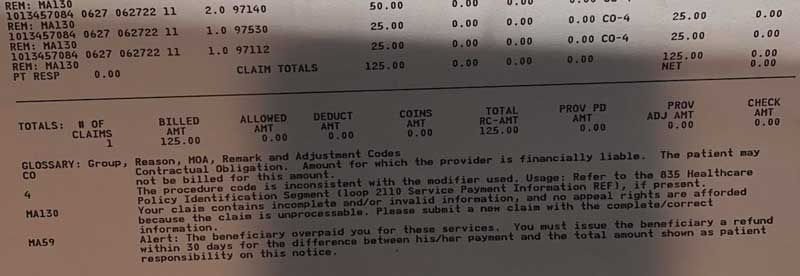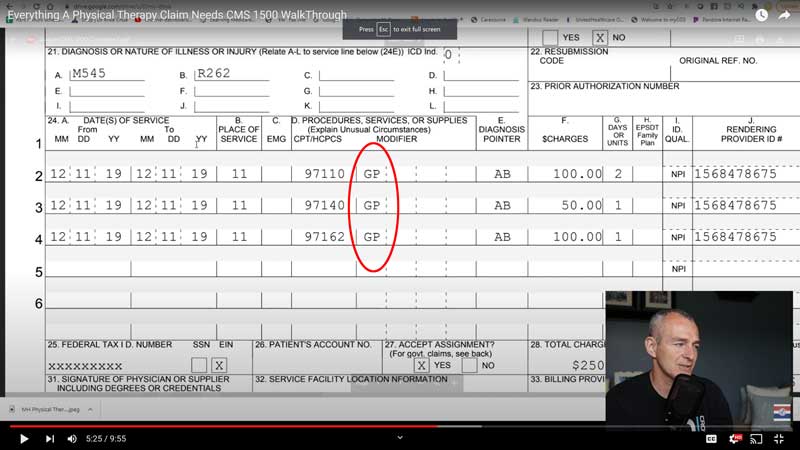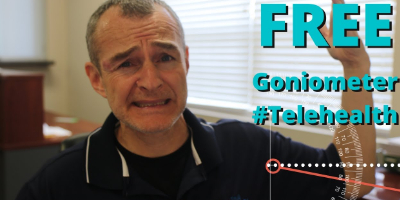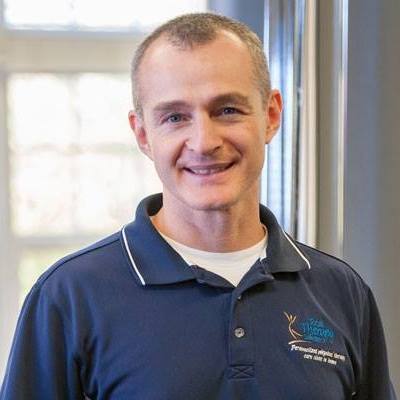
Reason Code 4
Medicare Remarks: “The procedure code is inconsistent with the modifier used or a required modifier is missing.”
The most common reason for this denial is a missing professional discipline modifier.
| GP Modifier | Physical Therapy |
| GO Modifier | Occupational Therapy |
| GN Modifier | Speech-Language Pathology |
Claim Corrections
Option 1: Log into your MAC portal and reopen the claim. Add the appropriate professional discipline modifier and reprocess the claim.
Option 2: If you do not have a MAC portal login then add the appropriate professional discipline modifier to your patient accounting software and resubmit the claim.
* NOTE: The following remark codes (MA 130 and MA 59) will accompany reason code 4 but do not provide any additional information. Once you fix the missing professional modifier the following two codes will resolve as well.
Reason Code MA 130
“Your claim contains incomplete and/or invalid information, and no appeal rights are afforded because the claim is unprocessable. Please submit the correct information to the appropriate fiscal intermediary or carrier.” Link
Reason Code MA 59
“The patient overpaid you for these services. You must issue the patient a refund within 30 days for the difference between his/her payment and the total amount shown as patient responsibility on this notice.” Link
Related Denials and Rejections
Where Does the Professional Discipline Modifier Go on the Physical Therapy Claim?
Every software is a little different, but the professional modifier GP would go in box 24D to the right of the CPT code. You would add a GP modifier on every line item.
See image below for example:

Telehealth – Using ScreenCapture, Canva, and A Digital Goniometer To Measure ROM (FREE)
Telehealth for physical and occupational therapy has been growing in popularity lately. Along with this growth, therapists are looking for new and easy to use tools. This simple goniometer can be added to your screen capture to measure joint range of motion.
Medicare Guidelines for Billing Therapeutic Exercise 97110 PT, OT in 2020
“Many therapeutic exercises may require the unique skills of a therapist to evaluate the patient’s abilities, design the program, and instruct the patient or caregiver in safe completion of the special technique. However, after the teaching has been successfully completed, repetition of the exercise, and monitoring for the completion of the task, in the absence of additional skilled care, is non-covered. For example, as part of the initial therapy program following total knee arthroplasty (TKA), a patient may start a session on the exercise bike to begin gentle range of motion activity. Initially the patient requires skilled progression in the program from pedal-rocks, building to full revolutions, perhaps assessing and varying the
seat height and resistance along the way. Once the patient is able to safely exercise on the bike, no longer requiring frequent assessment and progression, even if set up is required, the bike now becomes an “independent” program and is no longer covered by Medicare.”



